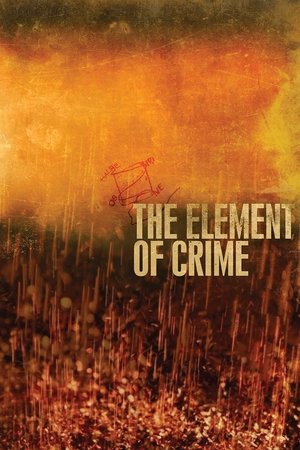Overview
After twelve years in prison, Walter returns home. His family has abandoned him, save for his brother-in-law. Few know he's a sex offender and pedophile. Walter finds an apartment and is regularly visited by his parole officer. He gets a job at a lumber mill and starts seeing a coworker. Then his new world begins to unravel; as his past becomes known, he strikes up a high-risk friendship with a young girl and realizes that a man loitering near a schoolyard is a child molester prowling for his next victim.
Reviews
_**Great psychological study**_
Released in 2004, "The Woodsman" tells the story of Walter (Kevin Bacon) who's trying to make a life for himself in Philadelphia after spending 12 years in prison due to his abnormal predilection for 10-12 year-old girls. When news gets out of why he was in prison it causes problems with his girlfriend (Kyra Sedgwick) and at his new job. Walter desperately seeks healing from his condition even while he occasionally flirts with his sick desires. On top of this is Walter's parole officer who doesn't believe the ex-con can be trusted in conventional society. Meanwhile Walter spots a pedophile preying on kids near the local elementary school. What should he do? And is there any hope for him to escape his condition?
There are two things potential viewers should know up front: Walter is aware of his problem and desires freedom from it. In other words, he's repentant: He WANTS to turn from his negative desires and channel his sexual energy positively and responsibly. Secondly, it becomes clear that Walter is not guilty of raping any girls but rather molesting them. Yes, it's still bad, but not as bad as raping or killing. These are important points which help the viewer have compassion on Walter and root for his success (because, if he was impenitent or guilty of actually raping or killing girls, then please fry his butt and get it over with; or, at least, lock him up and throw away the key).
As noted in the title blurb, the film is a dramatic psychological study. It spotlights the classic struggle of flesh & spirit or id & superego. It's dialogue-driven and plot-driven rather than action-driven or cgi-driven. In other words, this is a thinking-person's drama.
In a way, Walter's struggle is universal and most of us can relate to it on one level or another. For example, we may not have a predilection for tweenage girls but we might struggle with other destructive tendencies, like alcoholism, drugs, adultery, fits of rage, porn addiction, gluttony, sloth, depression, lying, etc. The film subtly makes it clear that without love & belief there's little hope of spiritual metamorphosis.
**MINOR SPOILER** (The next two paragraphs explore one of the main insights of the story and comments on one important scene).
One of the main points of the film is distinguishing a repentant pedophile from a non-repentant one. Walter has come to a place where he understands that his pedophile desires are of his flesh (id or destructive carnal nature) and should not be embraced, fed and acted upon (although, again, he flirts with the idea on a couple occasions). Walter KNOWS that to take advantage of young girls to get his jollies is wrong, and is trying to walk free of such desires. This is contrasted by the predatory pedophile who hangs out by the school preying on boys. This guy obviously embraces, feeds and acts on his pedophile desires. There's a big difference between these two. The attitude of the heart makes all the difference. Walter deserves a second chance because he's repentant and trying to change for the positive, even while he should be monitored closely. The other guy, on the other hand, has totally given himself over to his perverted desires and deserves the snot beat out of him.
One critic argues that it's not realistic that a 45 year-old guy sits on a bench in the park and a cute 11 year-old girl sits herself next to him and asks, "How's the view?" But, wait a second, Walter had previously met the girl so she was already familiar with him; he didn't hurt her before, why would he hurt her now? Besides, the girl comes from a dysfunctional home where she suffers molestation from her dad; hence, it's not likely that she has the best understanding and discretion concerning social situations, not to mention her inner need and compulsion for undefiled masculine love and attention. In addition, Walter was obviously drawn to and comfortable around girls, which helped make the girl feel safe around him.
Be sure to catch the deleted scene of Walter and Robin's discussion at the bench. The fuller version should never have been deleted; you'll see why when you compare the sequences.
Another criticism is that the film is melancholy and plays out in a flat manner. This is true but don't you think a bit o' melancholy fits the subject matter? As for the story being flat, the filmmakers (Nichole Kassell and Steven Fechter) were obviously shooting for realism. Isn't real life kind of flat? Personally I prefer realism over the goofiness, overkill action/cgi and generally unbelievable tone of many modern “blockbusters.”
Interesting tidbit: Kevin Bacon and co-star Kyra Sedgwick have been married since 1988 and have 2 children.
FINAL WORD: As long as you can handle the subject matter and a couple of cringe-inducing spots, "The Woodsman" is outstanding if you're in the mood for a serious drama or psychological study.
The film doesn’t overstay its welcome at a mere 1 hour, 27 minutes, and was shot on location in Philadelphia.
GRADE: A-

 87 min
87 min
 6.86
6.86
 2004
2004
 USA
USA
 Wuchak wrote:
Wuchak wrote:



















